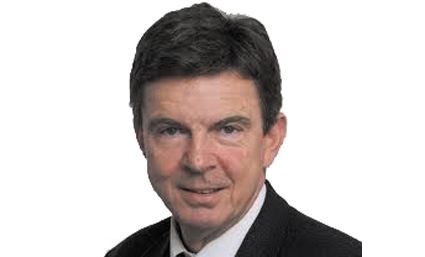A government-run investment fund is pretty open about what it's doing with about $80 million raised from an immigrant investment program.
But any reports on how the B.C. Renaissance Capital Fund is actually performing seem to be behind closed doors.
NDP critic Bruce Ralston asked about the little-known Crown corporation and didn't get much back after a go-round last week with the minister responsible, Teresa Wat.
"There's not a lot of scrutiny, they really don't know what's going on and they haven't monitored it all," he said Tuesday, based on the exchange.
Revenues come from a separate fund, the B.C. Immigrant Investment Fund, which was set up as an offshoot of a federal immigration program that was canceled last year. Wealthy immigrants put up money to secure citizenship and the funds were available to government for five years before the principal was returned to the immigrants.
The flow of money will be drying up as the program winds down. But Wat, minister of international trade, said the funds will continue to operate with funds available while the mandate is being reviewed.
The Renaissance Fund was set up in 2007 to channel immigrant investment into venture capital funds involved in innovative technologies to B.C. The idea was to commercialize innovative new technology concepts and increase the depth of venture capital in B.C., always a concern.
In return for getting Renaissance Fund money, the various venture capital funds committed to establishing profiles in B.C.
Wat told the legislature the fund has used $64 million of the money to leverage $305 million from venture capital outfits, money that was put in various ideas that have created more than 900 jobs in B.C. There's an itemized list of where the money went. But the actual financial performance of the Renaissance Fund isn't nearly as clear.
Ralston asked about the monitoring and reporting on the fund that is specifically required of the board of directors by the government. He didn't get much in the way of an answer. Wat said a service plan report in June will provide details, although the previous service plan report didn't have much.
One specific investment got some attention -- $4 million that was invested with San Francisco-based Azure Capital.
It was placed under the terms outlined above -- establish a profile in B.C., maintain a presence and, hopefully, re-invest in B.C.
But Wat confirmed that in four years, Azure has yet to make an investment in B.C. She said the firm has a Calgary office and has a Canadian on board who covers B.C. and maintains a watch on scene here.
"They are only four years into our 10-year partnership, so there's time for them to make B.C. investments," she said.
She noted Azure is the only one of eight fund managers that hasn't bought in. The others have actively invested in the B.C. tech scene.
Ralston said he was shocked the firm has received $4 million for 10 years with essentially no conditions.
Wat's response only deepened the confusion. "The Renaissance Fund is designed to achieve the best economic benefits and returns to B.C. It does this by not enforcing investment in B.C." The contract just requires the funds to review opportunities and meet with people.
The Renaissance Fund's website says "each of the venture capital fund manager commits to performing certain investment-related activities in B.C. in order to increase the probability of successful investment in the province."
Asked to produce the actual contract between the Renaissance Fund and Azure Capital, Wat said it's confidential corporate information and refused.
Ralston persisted with questions about whether any of the millions invested has resulted in a return to the Renaissance Fund.
"Or is the money simply put in there, and there's a kind of vague hope, unmonitored and undisclosed, that somehow maybe this $80 million will result in some jobs in B.C., but if it doesn't, it doesn't really matter because there are no consequences anyway?"
Wat said the rate of return is not calculated at single point in time, but over the investment period, so it could take five or six more years.
That's a long time to wait to see what the money is achieving.



